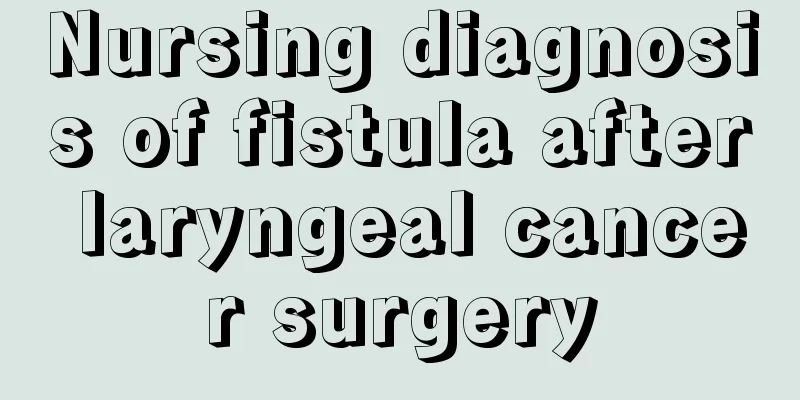Is nasopharyngeal cancer likely to be inherited?

|
Patients with nasopharyngeal cancer are usually very worried about their condition, especially some unmarried patients who worry whether nasopharyngeal cancer will be passed on to the next generation. So, is the chance of nasopharyngeal cancer being inherited high? How to prevent the occurrence of nasopharyngeal cancer? Let's take a look at the following introduction. Nasopharyngeal cancer has a hereditary tendency, but not all cases will develop. Currently, there is no research that has proven that cancer is a hereditary disease. However, if someone in the family has had cancer, the probability of their children getting cancer is higher than that of the general population. Therefore, it is not possible to conclude whether nasopharyngeal cancer is hereditary. However, do not worry too much. Not all cases of nasopharyngeal cancer are hereditary. You should avoid unnecessary emotions and make sure to detect and treat them early. Nasopharyngeal cancer may not be passed on to the next generation, so patients do not need to worry too much. The prevention methods of nasopharyngeal cancer are: 1. Strengthen exercise, improve physical fitness, and reduce the chance of infection with EB virus. Specific practices include: insist on washing your face with cold water to prevent colds. Actively treat acute rhinitis, diseases of organs adjacent to the nose, and systemic diseases to prevent the induction of this disease. And avoid staying in an environment with toxic or irritating gases and dust for a long time. In addition, patients should not blow their noses vigorously to prevent turbid mucus from running into the ears. Also, vasoconstrictive nasal drops, such as ephedrine and nose and eye cleansing, should not be used for a long time to avoid drug-dependent rhinitis. 2. In daily life, we should try to avoid inhaling harmful fumes, such as kerosene lamp gas, insecticide aerosol, etc., and actively quit smoking and drinking. At the same time, we should also pay attention to climate change, prevent colds, maintain nose and throat hygiene, and avoid viral infections. 3. Pay attention to the dietary structure, do not be partial to food, eat more vegetables, fruits and other foods containing a lot of vitamins. Eat less or no salted fish, pickled meat, etc. 4. In terms of diet, eat less or no foods containing nitrosamines, such as pickled salted fish, pickled cabbage, bacon and certain canned foods containing nitrosamines. According to relevant data, if children under the age of 10 eat salted fish, their risk of developing nasopharyngeal cancer increases significantly, so children should not eat it. Although nasopharyngeal cancer may be inherited, it is not necessarily inherited, so there is no need to worry too much. |
<<: Observation and nursing of complications after laryngeal cancer surgery
>>: How to detect colorectal cancer
Recommend
Can raw mango be eaten?
Raw mango is actually what we call green mango. G...
What are the complications of varicose veins treated with sclerotherapy
Nowadays, there are a lot of people suffering fro...
How to use hairpins
Every woman wants to have a beautiful hairstyle, ...
Urine is a little red_Urine is light red
If the urine is a little red, there may be occult...
What are the symptoms of breast cancer? 4 early symptoms of breast cancer
The high incidence of breast cancer is basically ...
Why do pimples on my face itch?
After getting acne on the face, many people will ...
What are the causes of esophageal cancer
Many people die from esophageal cancer, so esopha...
How to make a towel shower cap
A shower cap is a very useful piece of equipment ...
Extraskeletal Ewing sarcoma
Tumors may occur anywhere in the body, and the tr...
Can soy milk be stored in the refrigerator?
Many people drink soy milk to lose weight. Soy mi...
Can bone cancer be transmitted to others
Bone cancer is a rare disease that is very harmfu...
How can liver cancer be cured? What should be paid attention to in liver cancer treatment?
Liver cancer can be said to be a fatal disease, s...
What are the causes of acne on the jaw lymph nodes
When there is any abnormality in the body, it nee...
Lack of water may cause bladder cancer. Dietary treatments for various symptoms of bladder cancer
In recent years, due to the influence of various ...
Is it normal for fasting blood sugar to drop after a month of brisk walking?
As people's living standards improve, many pe...









